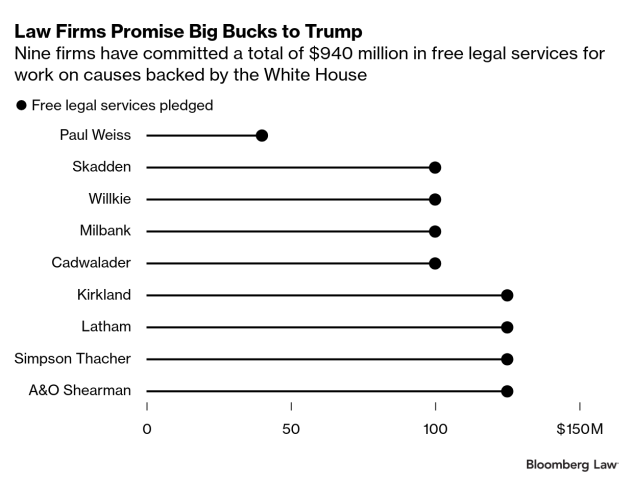- Goodwin details applicant demographics for fellowship programs
- Critics say law firms should not comply with EEOC requests
Goodwin Procter’s decision to share over 200 pages of information with the Equal Employment Opportunity Commission shows what has been some law firms’ low appetite for confrontation with the Trump administration.
The firm shared race, sex, gender, and law school affiliation of applicants who applied to Sponsors for Educational Opportunities legal fellowships and Leadership Council for Legal Diversity programs at the firm, and it revealed it ended a relationship with SEO and suspended ties with LCLD. Goodwin also axed a requirement for future applicants to demonstrate a “commitment to diversity, equity and inclusion,” a widely-embraced criteria in Big Law’s fellowship programs.
The diversity changes in the firm’s disclosures show the highly-risk-averse nature of Goodwin, according to David Glasgow, executive director of NYU Law’s Meltzer Center of Diversity, Inclusion, and Belonging. “They’ve gone further than the law requires,” he said.
Major law firms have chosen varying responses to being targeted by the Trump administration. Nine firms including Kirkland & Ellis and Latham & Watkins reached agreements with President Donald Trump that offer $940 million in free legal services, mostly to avoid being targeted with punitive executive orders.
Four firms, including Perkins Coie and Jenner & Block, took the Trump administration to court after being hit with orders that target their security clearances, access to federal buildings and government contracts.
It’s likely that Goodwin and its counsel determined that their data did not indicate any discrimination by the firm, said Joshua Roffman, a lawyer who advises companies on their diversity moves. “If there’s nothing to hide, there’s nothing to hide,” he said.
The law firm did not immediately respond to a request for comment. The EEOC declined to comment.
EEOC Response
Goodwin Procter, founded after former college classmates Robert Goodwin and Joseph Procter Jr. ran into each other by chance on a Boston sidewalk in 1912, was among 20 firms that received letters from the EEOC on March 17. The EEOC said it was investigating the firms for possible discrimination in their diversity programs.
“No one is above the law—and certainly not the private bar,” Acting EEOC Chair Andrea Lucas said in a statement at the time.
The letters asked the firms to hand over information on their diversity initiatives and hiring decisions to aid the commission’s probe. Jenny Yang, who chaired the EEOC during the Obama administration, criticized the letters and said law firms should not respond or comply.
“The EEOC has no authority to make these requests,” Yang said.
Some law firms did withhold information, at least initially. Reed Smith responded that it was in talks with the EEOC over its requests and therefore wasn’t providing information, according to information Bloomberg Law obtained through a public records request.
Perkins Coie declined to respond until its suit contesting a Trump executive order is resolved. Hogan Lovells requested an extension past the April 15 deadline. Six firms— Kirkland, Latham, Simpson Thacher, A&O Shearman, Skadden, and Milbank— made deals with Trump in exchange for being released from the probe.
Goodwin in its response, which Bloomberg Law also obtained through a public records request, opted against sharing some information with the EEOC. It withheld demographic data of attorneys at the firm who were considered for partner promotions. And it declined to share names, phone numbers and email addresses of those lawyers.
Still, Goodwin’s decision to share information with the EEOC puts pressure on the other firms who may still be determining how to respond, Roffman said. “The more and more law firms who decide to play ball, it’s going to be a lot harder for the other firms who will choose to stand their ground,” he said.
To contact the reporter on this story:
To contact the editors responsible for this story:
Learn more about Bloomberg Law or Log In to keep reading:
See Breaking News in Context
Bloomberg Law provides trusted coverage of current events enhanced with legal analysis.
Already a subscriber?
Log in to keep reading or access research tools and resources.

